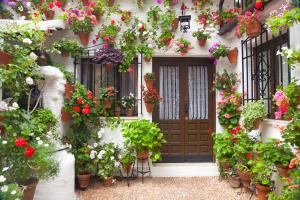Introduction
The tomato plant is an essential source of food for both human consumption and livestock. However, tomato plants are susceptible to several diseases and pests that can affect their growth and yield. One of the common problems faced by tomato plant growers is the curling of the leaves. The curving of the leaves can be due to various environmental and biological factors.
Environmental Factors
Environmental factors such as temperature, humidity, and light can cause tomato plant leaves to curl. Tomatoes prefer a temperature range of 15-30 degrees Celsius. Temperatures lower or higher than this range can result in the curling of the leaves. High humidity or moisture on the leaves can cause fungal growth, leading to the curling of the leaves. Tomato plants require a sufficient amount of sunlight for their growth, and insufficient light can result in the curling of the leaves.
Biological Factors
Tomato plants can be affected by several pests and diseases that can result in the curling of the leaves. The most common pests that can cause curling of the leaves are aphids, whiteflies, and spider mites. These pests feed on the sap of the leaves, causing them to curl or twist. The diseases that can cause leaf curling include tomato yellow leaf curl virus, tomato mosaic virus, and tomato spotted wilt virus.
Plant Nutrition
Inadequate nutrition can also cause the curling of tomato plant leaves. A lack of essential nutrients, such as nitrogen, magnesium, or potassium, can result in the malformation of leaves. Nitrogen is essential for leaf growth and green foliage, while magnesium is necessary for chlorophyll production. Potassium is critical for the overall health of the plant, and its deficiency can cause leaf curl.
Chemical Exposure
The use of pesticides or herbicides can also cause the curling of tomato plant leaves. The chemicals used in these products can be harsh on the plant and cause leaf curling. The overuse or misuse of fertilizers can also lead to the curling of leaves.
Conclusion
The curling of tomato plant leaves can be due to various environmental and biological factors, as well as inadequate nutrition and chemical exposure. It is essential to identify the underlying cause of the problem to take the necessary steps to correct it. Proper care and management of tomato plants can help prevent the curling of leaves and ensure healthy plant growth and yield.

 how many times do yo...
how many times do yo... how many planted tre...
how many planted tre... how many pine trees ...
how many pine trees ... how many pecan trees...
how many pecan trees... how many plants comp...
how many plants comp... how many plants can ...
how many plants can ... how many plants and ...
how many plants and ... how many pepper plan...
how many pepper plan...




























